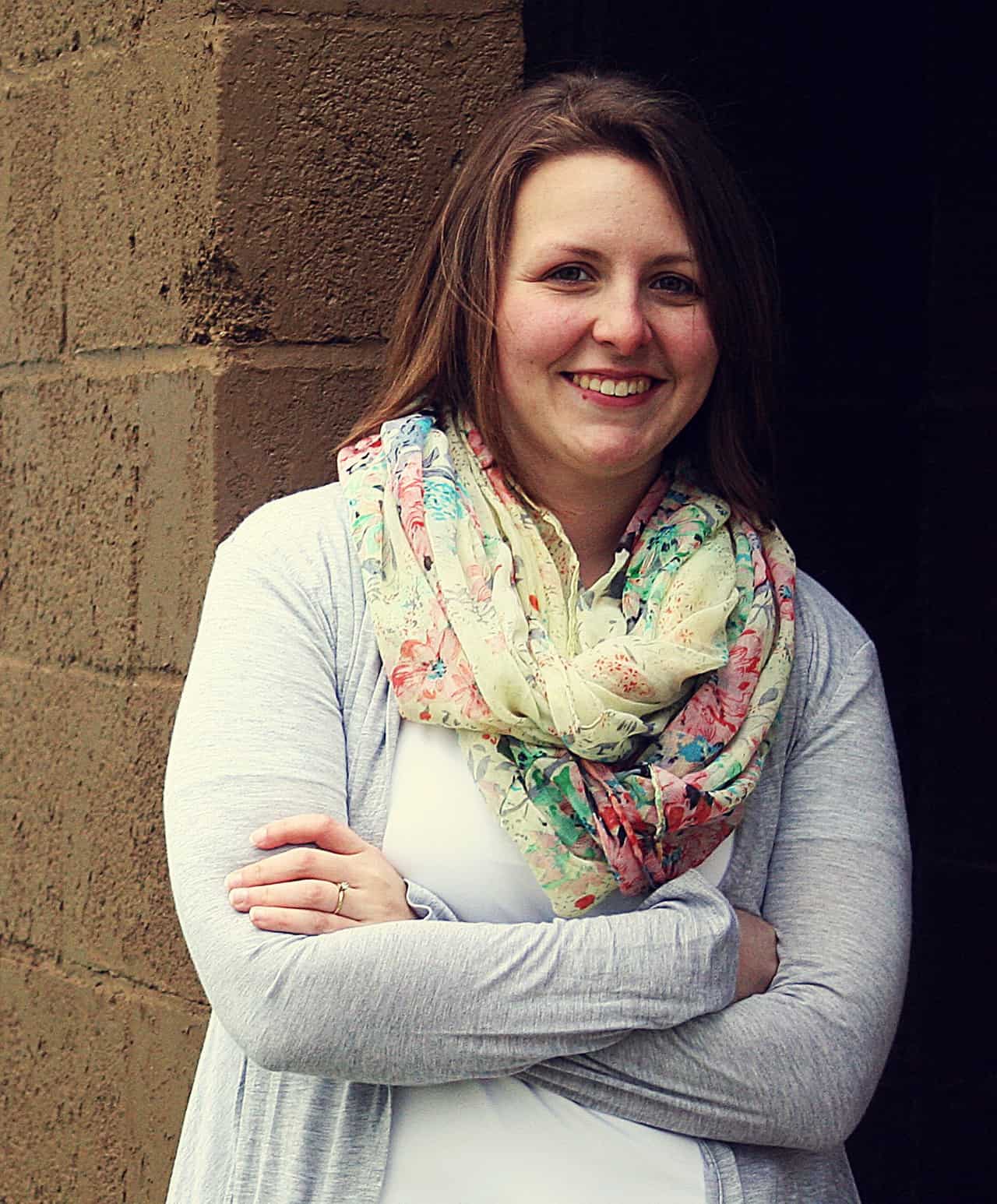Wellness Tips: The How-To For Your Body, Part 2

From our previous post, we were discussing wellness tips such as changing our mindset to a more positive outlook and overcoming our fears so we could experience change within ourselves and tackle our “demons” if you will. Here we are going to continue that discussion.
You are probably thinking how much more could there be?! There is so much information and help with it comes to our well-being, we have only scratched the surface. Again just a reminder that harmony and balance will look a little different to everyone. You have to be mindful of yourself and what your priorities are as well as your life goals, ambitions, all that jazz.
So we are going to continue our list of “helps” for our mental wellness which encompasses: emotional, spiritual, social, and intellectual well-being.
All content, materials and information here at An Eccentric Lifestyle are for informational purposes only. Any and all content is not intended to be a substitute for professional medical advice, diagnosis, or treatment. Always seek the advice of your physician or other qualified health provider with any questions you may have regarding a medical condition. Never disregard professional medical advice or delay in seeking it because of something you have read on the eccentriclifestyle.com.
Yoga
Quite honestly, I don’t know if I have met anyone so far that hasn’t heard of yoga. Simply and, probably crudely, put, yoga is a full mind/body exercise incorporating physical poses, breathing, and meditation. It’s a way to connect and engage our body with our minds as well as our emotional and spiritual state; to create a positive relationship within ourselves.
There is a Sanskrit saying that I feel really highlights what yoga helps you achieve,
As the mind, so the man: bondage or liberation are in your own mind.
(Frasher, 2018)
Our mind is very powerful and sometimes can control us more than we consciously do ourselves. Our reactions to certain situations, triggers, fears, thought processes… all the brain at work. If we have a tendency to think of the worst-case scenario and then act accordingly, maybe that’s not always what’s needed. Causing an overreaction or making the situation worse.
Another instance would be crippling anxiety. Sometimes my anxiety can get the best of me, it’s hard. Trying to strive for optimal wellness especially when you feel so far from it can feel daunting and crippling.
But you can do it, I can too. There is no instant miracle cure but we can, over time, take steps towards that optimal wellness, yoga is one avenue to use.
It can help us manage our stress, our anxiety, fears, and insecurities. Yoga can help relieve body pains, improve your ability to sleep, as well as improve your general well-being. There is no one size fits all yoga, exercises can be simple to quite challenging so you might not find a yoga “routine” that fits right away and that’s okay.
Yoga Programs
As you may discover, there is a wide range of yoga classes, DVDs, videos offered. Do what works for you. There are plenty of free YouTube videos. Since I am currently pregnant, I have been using Prenatal Vinyasa Yoga.
It offers such a wide range of exercises, short forms and long forms, the shortest one being only 15 minutes. It’s not only for pregnancy though so if you’re not pregnant this DVD can still be beneficial for you. I like it because when I found out I was pregnant again I didn’t have to worry about my exercises hurting my body or the baby. They were already showing you modifications during the routine no matter how far along you are.
Beachbody.com is another option although you have to pay a monthly subscription you have access to so much! But then there are also your local options such as classes through the Y or your gym membership, should you have one.

Music
Ah, music… I love music and I will admit to being a band nerd but you don’t have to be a nerd or even play an instrument to appreciate the benefits of music for your well-being. Again music can affect our social, emotional, intellectual, and spiritual wellness so the whole gamut.
Music can help you create relationships by bonding over a shared interest, reduce anxiety and improve your mood. It can also inspire your creativity, allow you to focus, or bring back fond memories (if you play the right song). I definitely enlist music when I have to clean my house. I hate cleaning but music makes it bearable.
I will add a word of caution though, not all music creates these benefits just because it’s considered music. I am not hating on any genre, all I am saying is take some time and feel out the music you are listening to. Music has a great influence on us and most of the time we don’t even recognize it.
There are certain types of genres, songs, or artists I stay far away from because I noticed that after I listened to them there was a noticeable change in my mood, my interactions with others, and my thoughts for the absolute worse. I didn’t like how I felt after but it took me longer than I would like to admit to figure out the cause. Once I changed what I was listening to for something I knew had a positive impact on my mood, I felt so much lighter! It was amazing the difference one song or type of music could make.

For example, I am rather eclectic in what I listen to and it all depends on what mood I am trying to go for. Cleaning the house definitely calls for bouncy, dance music while resting or putting my kids down for a nap calls for classical or Celtic instrumental music (don’t judge, it works for us).
My husband has his own list of songs he likes to listen to if he is mopping the house or working at the computer, while there are some songs I like and some I can tolerate, others drive me absolutely bananas.
I don’t know why, there isn’t anything wrong with what he is listening to, it definitely works for him, helps him focus, and be productive. It doesn’t work for me and that’s okay. That’s what’s so great and amazing about music. One song can elicit different reactions depending on the person. When I am writing there is no rhyme or reason to what I feel like listening to that day. Could be classical, soothing music or bouncy music, or even the oldies, I just go with what I feel I need that day and move on.
Music can do so much for you: help you grieve, help you process a difficult situation, create a relaxing moment, and even help you dance your anxiety away for the moment. Experiment with music and find what works and doesn’t work for you.
Meditation
Much like yoga, meditation is a mind/body exercise without physical poses. On the surface, meditation might look like a waste of time but the magic is happening within. Meditation allows you to be more mindful of your body which in turn makes you more aware of your surroundings. However, while you are actually meditating your sole focus is on you and your body. It can completely reprogram your brain for more positivity, overcoming your fears, help you gather your thoughts after a stressful day, or help you prepare for the stress of the day.
There are many ways to incorporate meditation into your day, even just for 10 to 15 minutes once or several times during the day. The goal is the quality of time you spend not the quantity. You can meditate while taking a walk, showering, drinking your morning tea/coffee, or even brushing your teeth.
Just take some time to quiet your mind, breathing slowly and deeply, and if it is beneficial to you find a mantra that you need to hear such as:
- Enjoy today
- Every day is a second chance
- I am worthy (…to be loved, to be happy, etc)
- Don’t ruin today, thinking about yesterday or tomorrow
- It’s okay to slow down
- I am in control of me
- I am enough
- I will just take today one step at a time
These are just a few, you don’t have to go with this list, research, and find one that speaks to you. Recite it while you meditate
Meditation much like the other strategies we have discussed here can lower blood pressure, increase blood flow, calm anxiety, help with depression along with a myriad of other benefits. Our goal is to achieve optimal wellness and we do that by being more mindful of ourselves and what our bodies need to be healthier and happier.
Replace bad habits with better

Sometimes we are the ones stopping ourselves from becoming better. I am just as guilty as anyone and probably everyone else. We want a better life but we aren’t willing to change the little habits that might be stopping us from getting there.
Don’t get discouraged or overwhelmed because you feel like you have too many habits to break. You won’t change your whole self overnight and you will break your brain if you try. It is also not enough to just stop doing a bad habit. A habit is something that has been ingrained into our brain, our mind thinks we need it in some way. So to break a bad habit we need something better to replace it with.
Take it one habit at a time and give yourself plenty of time to be successful. Consistency is the key and it is said that it takes 4 to 8 weeks for something to become a habit. Give yourself at least that much time because you are not just trying to create a new habit, you are trying to get rid of an old one and who knows how long that old one has been around. It just takes time so give yourself that time and some grace that you will probably mess up along the way. Don’t stress because you messed up just get up and try again.
I think that is an important part of the process, don’t be hard on yourself because you aren’t getting it yet. Tell yourself, well I will just try again tomorrow. If you need to see progress to believe it, keep a journal. Log all the times you were able to overcome that old habit and what you did instead. When you do mess up, you can go back and look at those times when you did overcome and know you can do it again.
Know your body’s limits
This is a big one that I used to ignore and I would bet that most individuals do too. We push ourselves to the max all the time and then wonder why we are burnt out and when it happened. We are tired all the time, stressed, or haven’t smiled in weeks. We think we are doing okay because we have shut our bodies off, we can’t feel anything anymore. Just push, push, and push. It’s not entirely our fault, there are expectations at work, at school, out in the world to overperform. To be the best of the best and if you’re not then you are a failure.
News Flash, you are not a failure. You need to reset and remember that life is to be enjoyed.
Find places in your life where you can afford to slow down. If you can’t find anywhere in your life where you feel like you can do that then maybe it’s time for an outside perspective. Someone you trust and has your best interests in mind. It might be time for some big and small changes in your life. I mean this whole post is about optimal wellness you can’t achieve that if you are pushing yourself too far and over the cliff.
Take the time to find what your limits are, write them down. Will you have to push sometimes… probably… but it shouldn’t be all the time. You have permission to rest and to find enjoyment and peace in life.
Social Dimension
I feel like this transitions right into the next two dimensions that we need to cover: social and intellectual. We will start with social…
I also should preface again that each dimension’s optimal level is going to vary from person to person so comparing isn’t going to work here. Find what works for you and roll with it and it’s okay if there’s a trial and error period. I feel this is particularly true with the social dimension of wellness.
Social is our relationships we have. They should be healthy, and supportive as well as mutually beneficial.
The reason why social wellness is so important is that people who have healthy relationships, and a strong social network tend to live longer and respond better to stress. This reduction in stress and anxiety results in a healthier endocrine system, healthier cardiovascular functioning, and an enhanced immune system.
One of the biggest benefits of having good social wellness is the presence of a social support network. This network can be close friends and family members to turn to when you are in need or in a crisis situation. Your support team can offer assistance, perspective, and insight to a situation that may have caused your judgment to become clouded.
(Lucas, 2019)
For full disclosure, I am a super introvert. I don’t thrive well in big group settings or even small group settings. If I run across an extremely extroverted person, it takes me a while to recover. There is nothing wrong with introverts or extroverts, that’s just part of who we are. It also helps in identifying what we need to achieve optimal wellness in the social aspect of our lives.
For me, most interactions are draining. I have less than a handful of what I would consider close friends, those that I confide in. Interaction with these individuals isn’t a whole lot, partly due to us being states away from each other, we text a couple of times a month or message each other to catch up. They aren’t offended that I don’t reach out more and visa versa. We are all moms with multiple little ones, we are busy, so each of us understands.
I also hang out with other moms once, in a while, we will all take our kids to the park and chit-chat. That’s all I need, hopefully, those that I am close to know that I will be there for them. I try to convey that so they will comfortable coming to me with anything. However, I won’t be in constant communication with anyone. It’s a little too exhausting for me.
Now extroverts are not like that at all. They thrive on interaction and get a supercharge out of it. So if you are extroverted, maybe you need a bigger network of connections to reach your optimal level. Go for it, do what works for you. Classes at your local gym, mom groups, people from your school, even church are ways to build connections, relationships that you can grow to appreciate, love, and look forward to.
The goal is not quantity though but quality… healthy, positive relationships. To me, that’s discussing topics and events, sharing thoughts and ideas while being uplifting, and helping your friends through difficult times. Celebrating the good times together, learning something new together while having a good laugh with one another. When someone leaves your company, they should feel lighter just as when you leave someone’s company, do you feel inspired/lighter?
Find time to give back to your community and serve those around you
I feel like the title is self-explanatory. Something we might not think about when we are struggling or just down in the dumps but carving some time into our lives to give back to others can uplift us or help us forget about our problems for a little bit.
Compared to people who didn’t volunteer, people who had volunteered in the past year were more satisfied with their lives and rated their overall health as better. Additionally, the researchers found that people who volunteered more frequently experienced greater benefits: Those who volunteered at least once a month reported better mental health than participants who volunteered infrequently or not at all.
(Hopper, How volunteering can help your mental health)

Service or volunteering is another way we can connect with others. You can see the positive impact you are having on others, helping you see for at least a moment that you do make a difference.
Intellectual Dimension
No this isn’t about the race to see who the smarty pants in the room. This is our pursuit of knowledge, the creation of our own ideas, views, and opinions, and the discovery of the new or not yet known.
I can’t speak for all people but many individuals aren’t entirely satisfied with life unless there is a little excitement. Learning or discovering something that was previously unknown can bring some much-needed spice to your life, making life more interesting for you while making you a more interesting person to be around.
Be willing to challenge yourself and ideas or opinions that you have held, not to create doubt but to be more open-minded to others’ experiences that might differ from yours. The key to learning more and growing as a person is to be more open-minded to new ideas and thoughts. Allow a space for differing opinions or experiences and ask questions. In the end, you don’t have to change your viewpoint but allowing differing ideas and beliefs can help expand your own thoughts about a particular subject.
My cut-off for differing views is one question, “Does this do harm to oneself or to others?”
My opinion is that I can only speak for my experiences which can be wildly different to any given person. Our experiences, beliefs, ideas, opinions (the list could go on and on) make up who we are and why we think the way we do. We are always changing. I like to keep an open mind to others’ views of the world even if I don’t agree with them. However, my tolerance for differing opinions ends when someone’s viewpoint or actions are hurtful to others or those around them. And I would hope people would call me out if something I said or did was hurtful.
The intellectual dimension isn’t just about academics or book learning, it’s common sense, learning of others or varying cultures, expanding your knowledge of beliefs and theories, science, literature, languages, and even math.
(I think I am sounding like a nerd)
Go after a topic that interests you. Learn a new skill/hobby. It’s okay if you don’t catch on quickly, enjoy the journey of learning and of failing. Failing shouldn’t be something that we are ashamed of, we should learn from our mistakes and get up and say well that didn’t work, let’s try something different. Take a page from these individuals:
I didn’t fail. I just found 2000 ways not to make a lightbulb
Thomas Edison
Failure is so important. We speak about success all the time. But it is the ability to resist or use failure that often leads to greater success.
J.K. Rowling
Success is not final, failure is not fatal, it is the courage to continue that counts.
Winston Churchill
There are many inspiring figures that speak on the pursuit of something greater, learning more about the world, and becoming more than you were yesterday. You can never be bored when there is so much mystery in the world.

Wrap up
Sometimes life is hard and can beat you down. I know, we have been there time and time again. It’s hard to find a balance in life when you feel like you are just surviving. There are ways for each of us to take steps to better wellness. Tackle one step at a time. It probably won’t get better overnight but allow time to work for you and in a couple of weeks or months, you will start noticing subtle changes (hopefully for the better). Then go on to the next one whether you are staying in the same dimension or moving to different ones. Doesn’t matter how you do it, just keep moving forward!
The next segment covers Wellness Tips for Your Vocational and Financial Health or pop back over to the Wellness menu and skip around
Thanks for reading!
References
Intellectual Wellness Dimension
Intellectual wellness. (2020, July 30). Retrieved April 10, 2021, from https://www.unh.edu/health/wellnessself-care/wellness-wheel/intellectual-wellness
Tips on Improving Intellectual Wellness. (n.d.). Retrieved from https://www.utoledo.edu/offices/rocketwellness/docs/Tips%20on%20Improving%20Intellectual%20Wellness.pdf
Meditation
8 things to know about meditation for health. (n.d.). Retrieved April 10, 2021, from https://www.nccih.nih.gov/health/tips/things-to-know-about-meditation-for-health#:~:text=There%20is%20moderate%20evidence%20that,health%2Drelated%20quality%20of%20life.
Bailey, C. (2017, March 01). The top 10 things I learned meditating for 35 hours last week. Retrieved April 10, 2021, from https://alifeofproductivity.com/top-10-things-learned-productivity-meditating-for-35-hours/
Hyland, L. (2021, January 08). 99 mantra examples for a happier you. Retrieved April 10, 2021, from https://www.thelittlepine.com/99-mantra-examples-positive-life/
Meditation: In depth. (n.d.). Retrieved April 10, 2021, from https://www.nccih.nih.gov/health/meditation-in-depth
Powell, A. (2018, August 27). Harvard researchers study how mindfulness may change the brain in depressed patients. Retrieved April 10, 2021, from https://news.harvard.edu/gazette/story/2018/04/harvard-researchers-study-how-mindfulness-may-change-the-brain-in-depressed-patients/
Publishing, H. (2014, July). What meditation can do for your mind, mood, and health. Retrieved April 10, 2021, from https://www.health.harvard.edu/staying-healthy/what-meditation-can-do-for-your-mind-mood-and-health-
Music
Cherry, K. (2019, December 10). 10 surprising psychological benefits of music. Retrieved April 10, 2021, from https://www.verywellmind.com/surprising-psychological-benefits-of-music-4126866
Keep your brain young with music. (n.d.). Retrieved April 10, 2021, from https://www.hopkinsmedicine.org/health/wellness-and-prevention/keep-your-brain-young-with-music#:~:text=Research%20has%20shown%20that%20listening,%2C%20mental%20alertness%2C%20and%20memory.
Publishing, H. (n.d.). Music and health. Retrieved April 10, 2021, from https://www.health.harvard.edu/staying-healthy/music-and-health
Team, P. (n.d.). 10 health benefits of music. Retrieved April 10, 2021, from https://www.gethealthystayhealthy.com/articles/10-health-benefits-of-music
Research on service and volunteering
Hopper, E. (n.d.). How volunteering can help your mental health. Retrieved April 10, 2021, from https://greatergood.berkeley.edu/article/item/how_volunteering_can_help_your_mental_health#:~:text=New%20research%20suggests%20that%20volunteers,symptoms%20of%20anxiety%20or%20depression.
Watson, S. (2020, June 09). Volunteering may be good for body and mind. Retrieved April 10, 2021, from https://www.health.harvard.edu/blog/volunteering-may-be-good-for-body-and-mind-201306266428
Yeung, J., Zhang, Z., & Kim, T. (2017, July 11). Volunteering and health benefits in general adults: Cumulative effects and forms. Retrieved April 10, 2021, from https://www.ncbi.nlm.nih.gov/pmc/articles/PMC5504679/
Social Wellness Dimension
Frasher, J. (2019, December 5). Social wellness in 8 easy steps. Retrieved April 10, 2021, from https://www.conehealth.com/services/behavioral-health/8-ways-to-better-social-wellness/
House, A. (2018, June 11). 7 ways to successfully CULTIVATE Social wellness for life. Retrieved April 10, 2021, from https://www.optimumperformanceinstitute.com/life-coaching/7-ways-to-successfully-cultivate-social-wellness-for-life/#:~:text=What%20is%20social%20wellness%3F,the%20bigger%20puzzle%20of%20humankind.
Social wellness toolkit. (2018, December 10). Retrieved April 10, 2021, from https://www.nih.gov/health-information/social-wellness-toolkit
Social wellness. (2020, November 19). Retrieved April 10, 2021, from https://www.unh.edu/health/wellnessself-care/wellness-wheel/social-wellness
Yoga
Benefits of yoga. (n.d.). Retrieved April 10, 2021, from https://osteopathic.org/what-is-osteopathic-medicine/benefits-of-yoga/
The meaning of Yoga. this understanding will change how you practice. (2019, January 16). Retrieved April 10, 2021, from https://oneflowyoga.com/blog/the-meaning-of-yoga
Publishing, H. (n.d.). Yoga for anxiety and depression. Retrieved April 10, 2021, from https://www.health.harvard.edu/mind-and-mood/yoga-for-anxiety-and depression#:~:text=By%20reducing%20perceived%20stress%20and,blood%20pressure%2C%20and%20easing%20respiration.
What is yoga? (2018, November 05). Retrieved April 10, 2021, from https://yogashanti.com/focus/what-is-yoga/
Yoga: What you need to know. (n.d.). Retrieved April 10, 2021, from https://www.nccih.nih.gov/health/yoga-what-you-need-to-know






